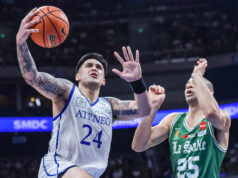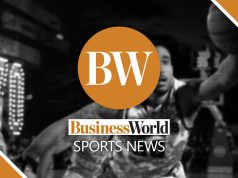LeBron James knew he was going to be asked about Rockets general manager Daryl Morey’s tweet in support of the Hong Kong protests. He was in China when the fallout over its posting — and despite its subsequent deletion — erupted and disrupted the National Basketball Association’s schedule of events in the country. He was part of the Lakers’ contingent, and while their two matches against the Nets pushed through, ancillary functions, press conferences included, did not. And, apparently, he seethed, not at all enjoying the restrictions to his movements brought about by the backlash.
Back in the United States, James met the media throng that awaited, and he promptly made his sentiments known. He didn’t appreciate the repercussions of Morey’s “misinformed or not really educated” contribution to social media, he said; “so many people could have been harmed not only financially, physically, emotionally, spiritually.” Even as he admitted to having “no idea” on the circumstances behind the Rockets official’s tweet, he argued that “we do have freedom of speech, but there can be a lot of negative that comes with that, too.”
Needless to say, James was pilloried for his position, and to the point where he felt compelled to clarify it on — where else? — Twitter. “I do not believe there was any consideration for the consequences and ramifications of the tweet. I’m not discussing the substance. Others can talk about that,” he posted. “My team and this league just went through a difficult week. I think people need to understand what a tweet or statement can do to others. And I believe nobody stopped and considered what would happen. Could have waited a week to send it.”
Yesterday, James saw fit to double down on his stance even as fans in Hong Kong showed their displeasure for it by burning his jerseys. “If you don’t have a lot of knowledge about it or quite understand it, I don’t think you should talk about it because it puts you in a tough position,” he argued. And, technically, he’s right; public discourses are better served when joined by quarters with ample information. That said, he conveniently forgot to practice what he preached when he took Morey to task even though all he had was, in his words, “my belief.”
No doubt, James wishes he could redo the last couple of days so as to cast himself in a better light. Normally savvy when it comes to projecting his image, he appears to have done nothing in the week he was inaccessible to media to frame a more concrete message that bolsters his rep as an intelligent purveyor of hot-button issues. Instead, his muddled approach brought down his Q Score and made him a legitimate target of criticism for seemingly putting economic interests above all else. Given his history, it’s likely not true. Unfortunately, it has also become immaterial.
Granted, James has too big a name not to survive the hit. In due time, it will be repaired, and he will again be given proper recognition for his worthy causes. Nonetheless, there can be no denying that he missed out on a grand opportunity to make a difference as the most “woke” player in the NBA. He already had a blueprint laid out by league commissioner Adam Silver, whose deft maneuvering both protected Morey’s right to free speech and ensured the promotion of a going concern. That he didn’t follow it speaks to the mindset prevailing in his circles.
As James admitted yesterday, he’s not perfect. Then again, he wasn’t asked to be. He was simply expected to be himself. And maybe he was — just not the version he previously portrayed as first among equals.
Anthony L. Cuaycong has been writing Courtside since BusinessWorld introduced a Sports section in 1994. He is a consultant on strategic planning, operations and Human Resources management, corporate communications, and business development.



